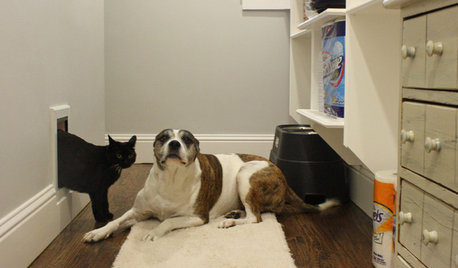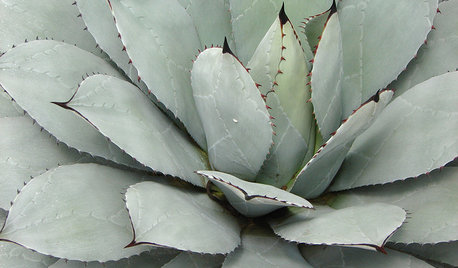Foot for Cat with Borderline Kidney Failure
betsyhac
10 years ago
Related Stories

PETSPet-Proofing Your Home: A Room-by-Room Guide
Not all pet dangers are obvious. Keep furry friends safe and sound by handling all of these potential hazards
Full Story
GARDENING GUIDESHouzz Call: What’s Your Favorite Backyard Beauty?
The simple, honest daisy is this writer’s go-to garden flower. We want to hear which plant, flowering or otherwise, gives you special joy
Full Story
GARDENING GUIDESBackyard Birds: Invite Entertaining Hummingbirds Into Your Garden
Hummingbirds — unique to the Americas — zip through open landscapes seasonally or year-round. Here’s how to attract them
Full Story
FOLIAGEGet a Cool Garden Look With Gray and Blue Plants
Looking for plants that calm with color in the heat of summer? Look no further than these 14 soothing beauties
Full Story








Debbie Downer
socks
Related Professionals
Clive Architects & Building Designers · Oak Hill Architects & Building Designers · Franklin Furniture & Accessories · Huntersville Furniture & Accessories · Carson Furniture & Accessories · Glendale Heights Cabinets & Cabinetry · Rowland Heights Cabinets & Cabinetry · Tacoma Cabinets & Cabinetry · Tenafly Cabinets & Cabinetry · Brookline Flooring Contractors · Cottage Grove Flooring Contractors · Deerfield Beach Flooring Contractors · Ocoee Flooring Contractors · Plainfield Flooring Contractors · Verona Flooring ContractorsUser
mudhoney
cookie8
betsyhacOriginal Author
laurief_gw
betsyhacOriginal Author
oregpsnow
laurief_gw
betsyhacOriginal Author
laurief_gw
betsyhacOriginal Author
laurief_gw
tuhumom